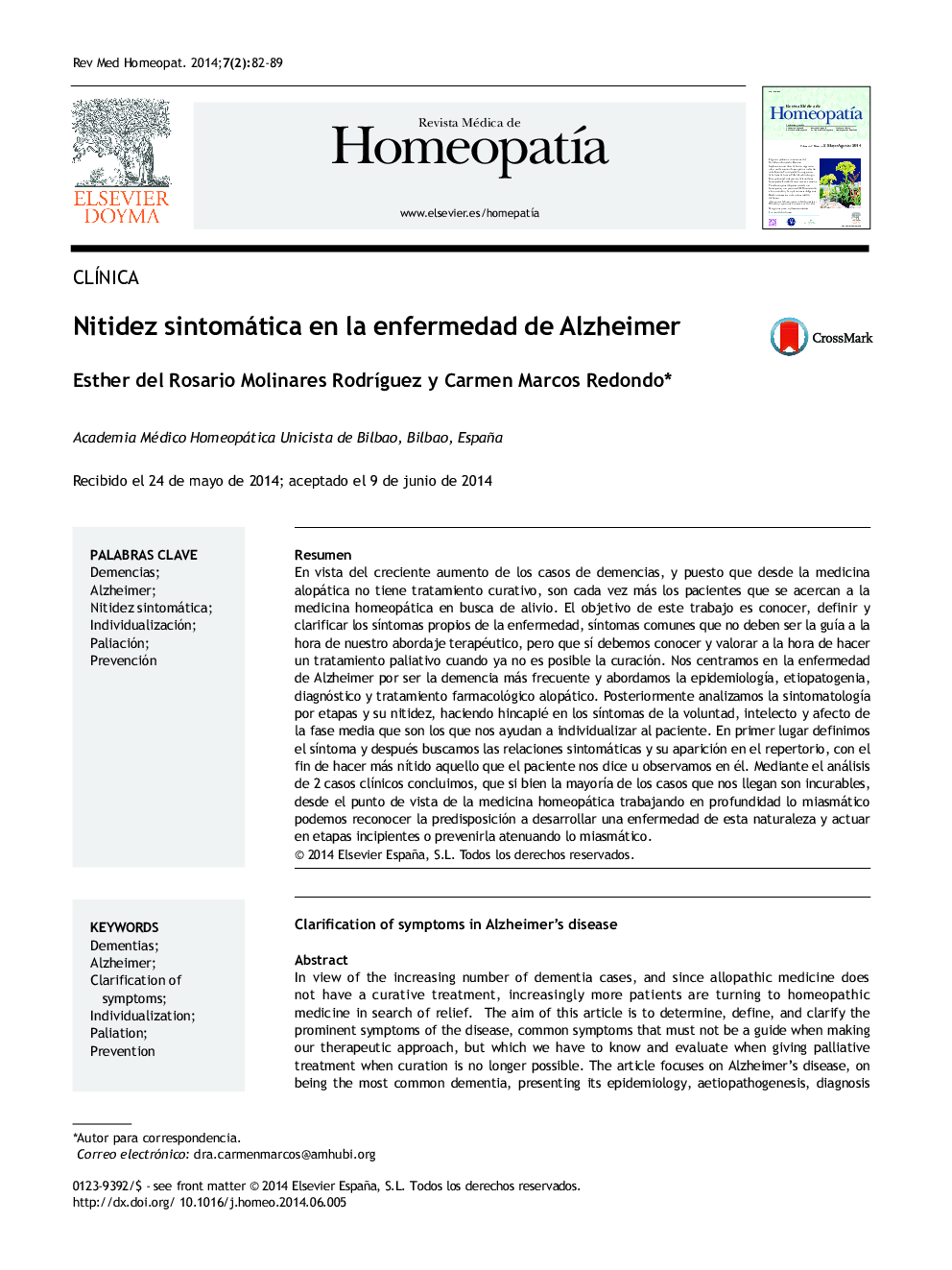| Article ID | Journal | Published Year | Pages | File Type |
|---|---|---|---|---|
| 3102786 | Revista Médica de Homeopatía | 2014 | 8 Pages |
Abstract
In view of the increasing number of dementia cases, and since allopathic medicine does not have a curative treatment, increasingly more patients are turning to homeopathic medicine in search of relief. The aim of this article is to determine, define, and clarify the prominent symptoms of the disease, common symptoms that must not be a guide when making our therapeutic approach, but which we have to know and evaluate when giving palliative treatment when curation is no longer possible. The article focuses on Alzheimer's disease, on being the most common dementia, presenting its epidemiology, aetiopathogenesis, diagnosis and allopathic pharmacological treatment. An analysis will then be made of the symptoms by stages and their clarity, with emphasis on volitive symptoms, intellect and affect of the middle phase, which are those that help individualise the patient. The symptom is defined first and then the symptomatic relationships and their appearance in the repertoire, with the aim of clarifying what the patient tells us or what we observe. By analysing 2 cases, it may be concluded that, although the majority of cases that are seen are incurable, from the point of view of homeopathic medicine and working in detail with the miasms, the predisposition of developing a disease of this nature can be recognised and be able to act on the incipient stages or prevent it attenuating the miasm.
Related Topics
Health Sciences
Medicine and Dentistry
Complementary and Alternative Medicine
Authors
Esther del Rosario Molinares RodrÃguez, Carmen Marcos Redondo,
